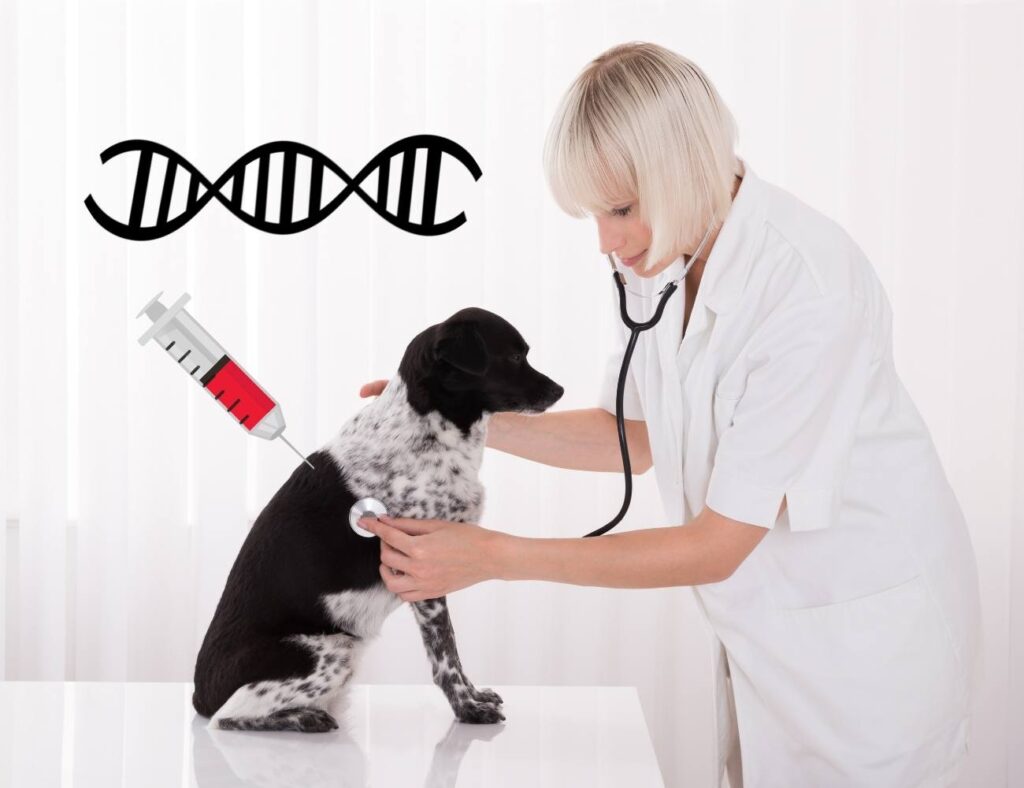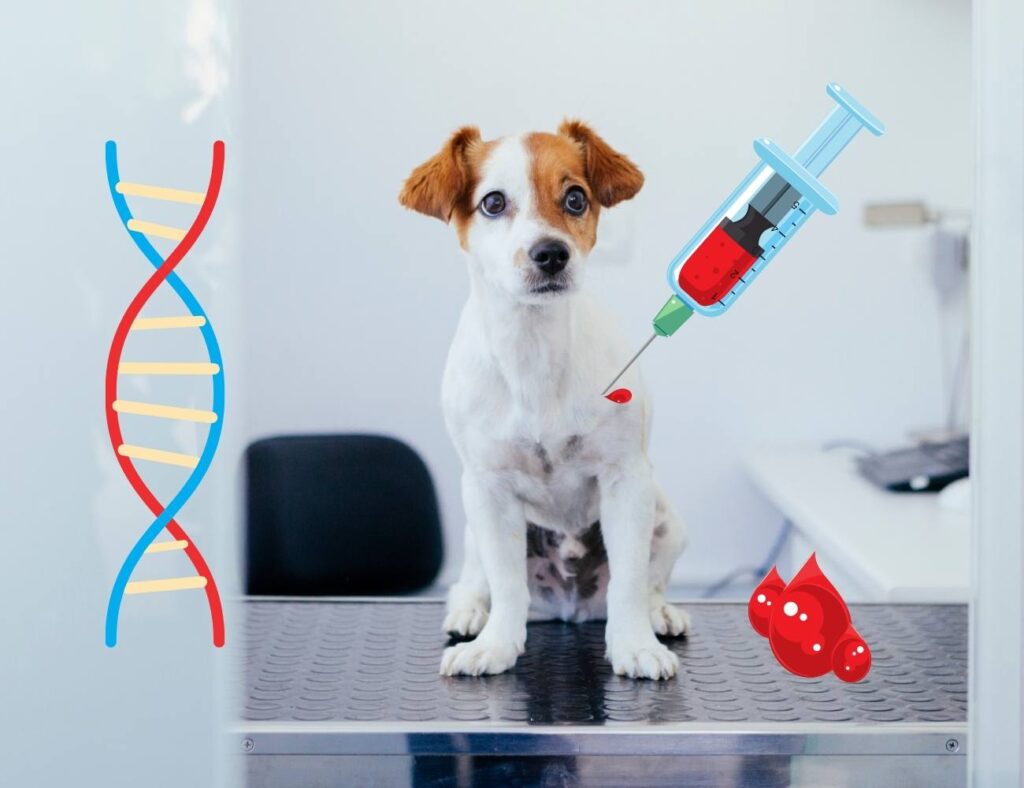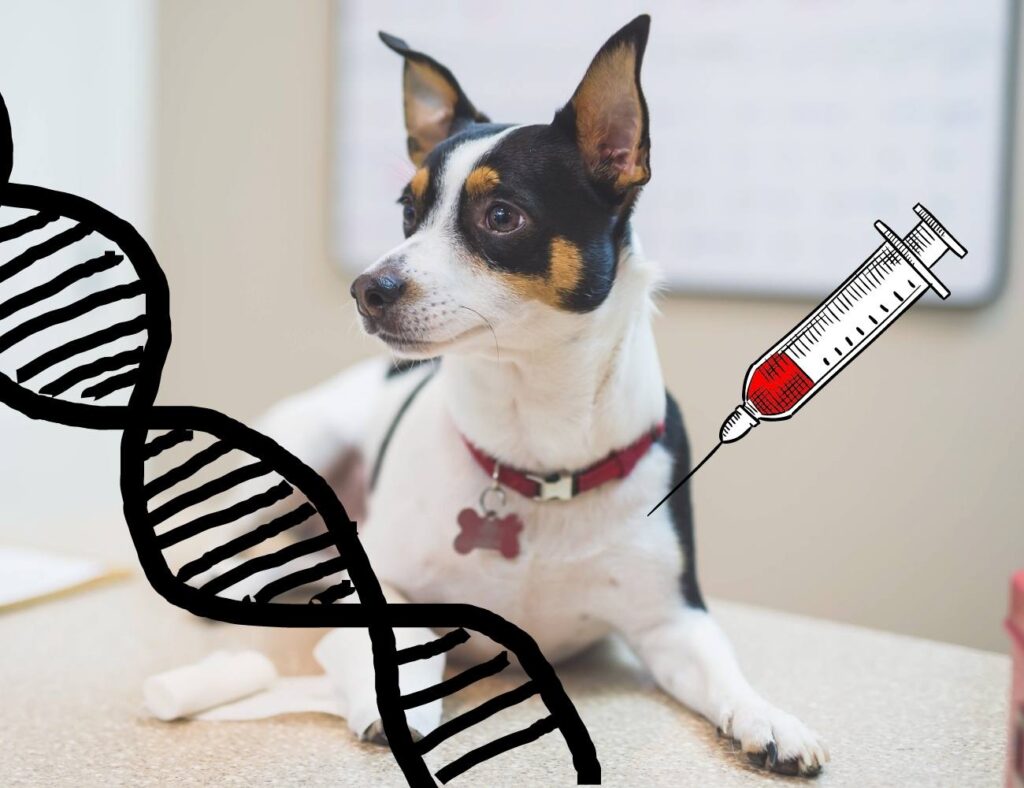Physical Address
304 North Cardinal St.
Dorchester Center, MA 02124

Table of Contents
Dog Breed DNA Test: What do you need to know?

If you feel that your dog has a genuinely mysterious breed, then a Dog DNA Test is likely your best choice. A DNA test for dogs is designed to reveal your dog’s breed heritage or ancestry. Even humans are fascinated by our own family trees, cultural histories, and medical inclinations. How much more so are our four-legged furry best friends? It’s never been easier to track down your lineage. With several enigma dogs from rescues, it’s no surprise that dog DNA testing has come to prominence.
Dog owners could leverage this cutting-edge technology to determine the breed of their canine family members. When someone asks what breed your dog is, what do you say? It’s either you know, or you don’t. So, if your dog is a mixed breed and you are suspicious of its ancestry or lineage. Then, DNA testing will be worth the effort. However, until mixed-breed dogs can communicate and tell us what they are, dog owners are discovering their canine’s origins via DNA testing.

The very intriguing thing you should know about dog DNA testing is that they’ve gone a long way. Your dog’s DNA has a wealth of information. Knowing your dog’s genetic information can help them live a longer life. Every dog owner obviously knows their dogs pretty well since they spend so much time with them. But mind you, it’s even more exciting to discover stuff about them that you couldn’t possibly know without DNA results.
Finding out your dog’s breed is merely one little reason you should get this dog DNA test. There’s more to it than you realize! Canine health is one fundamental reason you should give DNA testing a lot of thought. 40% of canines are affected by a hereditary condition for the record. However, it’s incredible that we live in this very techy time. This is an era when we can determine our dog’s hereditary issues just by understanding DNA results. Along with your veterinarian, you can start preventive treatment as soon as possible when you discover some health issues. With a simple single test, you can communicate with your veterinarian and establish proactive actions to safeguard your dog’s health.
Every dog parent can hope that the test will be much more pleasurable than they could have imagined. That’s since they will get incredibly vital information about their canine. Consider this: for the cost of a few bags of dog food, you can learn important knowledge that could save your dog’s life.
First, get a Dog DNA Testing Kit and collect a DNA sample from your dog. To get your dog’s sample, swab it with swab cotton supplied by the Dog DNA kit. Put the swabbing cotton in the dog’s cheek pocket and rub it around for approximately 30 seconds. There you have it!
After that, mail the dog sample with the accompanying packaging and postage. Wait to hear back from the dog company from whom you choose to acquire a dog DNA testing service. Here are some basic and necessary steps to get you started.
The simplest answer is it depends. Dog DNA testing costs typically between $60 to $200. Depending on how in-depth you want to get into your dog’s heredity. Some tests merely offer your dog’s breed ID, while others can contain more detailed information. This includes health concerns, a family tree, ideal size & weight, nutrient recommendations, and much more.
Thus, the cost of a dog DNA testing service is determined by various factors. It includes which DNA company you choose and how detailed the DNA data you want. It will almost certainly be expensive if you have precise requirements for how your dog’s DNA sample should be tested. And it will be quite relative to the accuracy of the DNA result you will obtain.

Dog DNA testing is nothing more than an advanced technology that can save you time and money in the future. A dog’s DNA test findings can tell you a great deal of information. It can be an incredibly valuable and helpful tool for improving your dog’s health or avoiding diseases.
In terms of health, it’s a fantastic resource. For instance, if you know your dog has a genetic problem, you can plan ahead of time. And take precautions to prevent expensive procedures later on. You may also find out whether your dog is at risk for kidney and bladder stones. These can often be avoided with proactive dietary changes. You can also learn whether your dog is predisposed to common adult-onset diseases like heart disease and glaucoma. The exciting part is that after you’ve discovered your dog’s DNA test result, and hence its family tree. You’ll never look at them the same way again.
As previously stated, dog genetic test kits can reveal more than solely your dog’s breed. Here are interesting things a DNA test for your dog can do tell you:
1: Breed and Traits or Characteristics
The DNA test results include the percentage of your dog’s breed mix. Additional information about each breed is also available, including temperament, appearance, history, and related breed information. Ancient genetic characteristics, maternal line, and age are other fascinating breed information you can obtain with a dog DNA test.
2: Health and Genetic Risks
Most DNA Testing kits for dogs can detect hundreds of genetic disorders. These are conditions that your dog may be “at-risk” for or a “carrier” for based on their breed mix. It can identify disorders like glaucoma and Von Willebrand disease and breed-specific conditions like Muscular Dystrophy in Golden Retrievers. With these features, you can be a more proactive owner and prevent these health problems from happening.
3: Weight and Nutritional Recommendations
DNA testing also provides helpful information regarding your dog’s weight. The results can estimate your dog’s adult weight. You can also acquire a recommended weight range to know how much your dog should weigh to be healthy. Moreover, this amazing tool may also provide dietary advice depending on your dog’s size and breed mix.
4: Lineage, Ancestry, or Heredity
What a thrill it would be to discover your dog’s long-lost sister or brother. Dog DNA testing can also discover your dog’s ancestry and lineage.

It depends, which means it’s conditional. Every dog owner who has invested in dog DNA testing has spent a ton of cash. This is true to get the best, most precise results available.
DNA testing can be more in-depth than the standard procedure. A Dog DNA test standard process entails examining a specific selection of genetic markers. Hence, a more sophisticated DNA test would involve examining almost every single marker or genetic of a canine. To decode, what you’re getting from the dog companies’ Dog DNA Test results is accurate. However, it is conditional to multiple variables and tech factors.
In certain cases, a dog’s DNA testing may reveal different lineage or ancestry, despite them being siblings. It can be because the dog testing company only employs a limited number of genetic markers to determine canine ancestry. If they examine every single facet of each dog’s DNA, they might find that sibling dogs have the same lineage percentage. However, that will be quite expensive. Therefore, some DNA testing companies can only afford to test and examine a limited number of markers. Hence, the inaccuracy or error.
Furthermore, suppose some of the genetic markers used by the company are located on the sex chromosomes. In that case, there is a larger probability of obtaining a more detailed and accurate DNA result.
Another vital factor to note is that accuracy is partly determined by the dog company’s resources, such as its database. Suppose you validated that your dog has a mixed breed called Transylvanian hounds. But it did not appear in its DNA test. In that case, it might indicate that the dog company that examined your dog’s DNA sample does not have Transylvanian hound DNA in their database. As a result, they won’t be able to read it.
I’m an Accounting student, an aspiring entrepreneur and a private tutor. Apparently, I’m just an ordinary lad living in the suburb with cats and dogs. I’m a brilliant daughter to my parents, a sister to Phoebe, and a stubborn granddaughter. You will know me as a normal Jane with goals and ambitions.